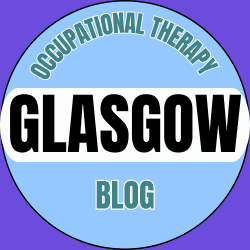This week’s blog addresses the letter ‘K’ for ‘Keeping Active’ in our 'Alphabet of Occupational Therapy' series and is inspired by the charity, and social enterprise, Sporting Memories. Sporting Memories support Glasgow Caledonian University occupational therapy students as a diverse practice placement provider. Whilst there is no occupational therapist employed within the service, their mission …
J is for Journals
In this blog, I offer some reflections and suggestions on the value of engaging with scientific journals as part of our educational and professional development. Who are journals for? You may be a student who is developing knowledge and critical understanding of occupational therapy and/or occupational science; you may be a researcher who is contributing …
I is for Identity…..
Professional identity development in occupational therapy What is professional identity? When we say professional identity, it is more than just your job title or the credentials that follow your name. Professional identity is “a constellation of attributes, beliefs, values, motives, and experiences through which people define themselves in a professional role” (Fitzgerald, 2020). As an …
G is for Gardening as a meaningful occupation
Did you know that Glasgow, translated from its Gaelic name, literally means ‘Dear Green Space’? It has the most accessible green space of all Scottish cities (Glasgow City Council, 2019). With that in mind, this blog focuses on gardening as a meaningful occupation and therapeutic activity and encourages you to consider how you might incorporate …
Continue reading "G is for Gardening as a meaningful occupation "
Face of Professionalism
Professionalism can be thought of as conforming to the standards of a particular profession and is illustrated though the behaviours demonstrated by a professional (Deluliis, 2017). A level 1 module about developing professional skills and behaviours within the BSc (Hons) Occupational Therapy programme at Glasgow Caledonian University has a strong focus on professionalism. This is …
E is for ethical tensions – is this more of a reality now and what can we do about it?
Ethical tensions have been recognised as a significant concern in occupational therapy practice for a number of years (Durocher and Kinsella 2021). So when reflecting on writing this blog post, I wondered if—with current financial pressures and increasing complexity of patients/ services users occupational needs—that practice has even more ethical tensions than ever before. More …
D is for Digital
In March 2023 Professor Lorna Paul (Professor in Allied Health Science) and I had the opportunity to visit the Komfo Anokye Teaching Hospital in Kumasi, Ghana. We are part of a research team from GCU which Professor Paul leads and also includes Eric Nkansah Opoku (Occupational Therapy Lecturer), Professor Fredericke Van Wijck (Professor of Neurological …
C is for Carers
Who are the unsung heroes of health and social care? I would suggest that a group worthy of this title are the informal carers supporting family, friends and neighbours. Why? In the UK, estimated numbers of informal carers are between 5.7 million and 10.6 million (Carers UK, nd; Carers UK, 2022a) to 13.6 million (International …
B is for Belonging…on Placement
A sense of belonging, or need to belong, is a fundamental part of human existence. It refers to an emotional need to be affiliated with and accepted as part of a group (Cherry, 2023). Recently, the UK Council of Deans of Health published a report on issues of Equality, Diversity, Inclusion and Belonging in higher …
A-Z of Occupational Therapy: A is for Activity Analysis
This #OTWeek we're launching a new series on our blog: 'The A-Z of Occupational Therapy'. Look out for posts every fortnight, on 26 different topics related to the profession of occupational therapy. This week we're kicking off with A for Activity Analysis from Fiona Coupar and four of our occupational therapy students. Activity analysis is …
Continue reading "A-Z of Occupational Therapy: A is for Activity Analysis"

